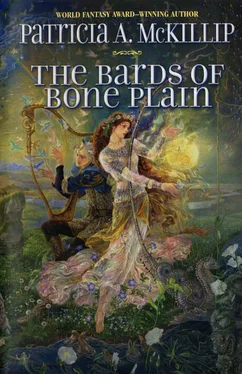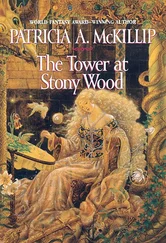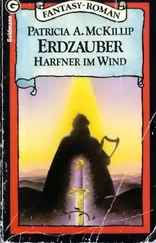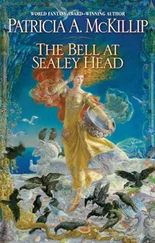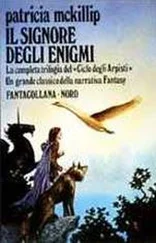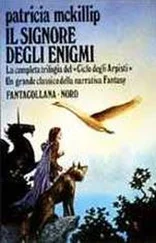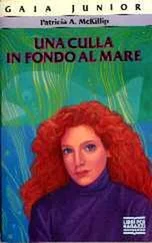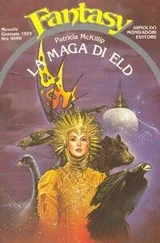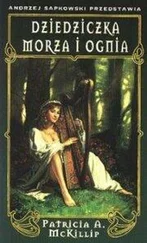He passed it to her, like a gift or a curse, she couldn’t tell; she only knew that in that inexplicable, wordless moment, she recognized what it was he wanted.
He spoke finally, huskily. “Tell me what it is.”
“I don’t know.” Her own voice had vanished. “I have glimpsed it, here and there, within the notes of ancient ballads, between the lines: the shadow, the footprint, of something ancient, powerful. Memories, maybe. Resonances.”
“Yes,” he said urgently. “Yes. Where do I go to learn more?”
“I don’t know.”
Still, his eyes clung to hers, wanting, willing answers out of her. You see it, too, he told her without words. You want it, too.
“Who will you ask?” she heard, and was uncertain which of them had spoken aloud.
She stepped back finally, drawing breath deeply as though she had been submerged in some timeless, nameless realm and had, for a moment, forgotten that she was human.
“I don’t know,” she said a third time, feeling at once shaken and inordinately curious. “We may—we may be seeing only the remnants of something long gone from this world. Maybe you and I were just born with primitive eyes. Or hearts. Born with a gift for something that doesn’t exist anywhere any longer, and the recognition, the longing for it is all we’ll ever know.”
He swayed toward her, as though she, understanding it, had become part of his longing. His face, at once ardent and tentative, looked suddenly very young. She had learned to dance around such impulses; she slipped past him, was at the door as he turned, surprised, searching for her.
She said simply, “If I do stumble into an answer, I’ll tell you. And you must tell me. Promise.”
He nodded after a moment, said finally, “I promise,” and she left him there, still wondering, from the look on his face, what had or hadn’t happened.
She returned to the tower, went upstairs to take off her robe in her room, and downstairs again to see if the kitchen had somehow cleaned itself. It hadn’t. But something of Frazer’s chaotic impulses still clung to her thoughts; the chaos in the kitchen seemed to mirror them. She turned abruptly, went outside, across the school grounds, scarcely seeing the tranquil gardens, the lawns, the gnarled oak, the dreaming stones. She walked down the hill until she spotted a lumbering steam tram, and took it to the bottom. There, along the noisy waterfront, she walked again, on ancient cobbles past docks and fish markets and every kind of shop, until she reached a doorway with a painted sign above it: blue lilies cavorting in a ring beneath the sun’s smiling face. The Merry Rampion, the sign proclaimed, and she went in.
There she found Chase Rampion drying glasses behind the bar. He noticed her and smiled like the sun, cheerful and benign, golden rays of his uncombed curly hair petaling out around his face. She went behind the bar, threw her arm around his neck, and kissed him, feeling like the parched traveler in the desert stumbling into the unexpected spring. When she loosed him finally, the world within her head had straightened itself out, grown familiar again. The handful scattered among the little wooden tables were chuckling; so was he, when he could finally speak.
“Good morning to you, too, love. What was that for?”
“I don’t want to talk about it,” she said, and sat down with him awhile to talk of everything but.
She found a note from the Royal Bard on the kitchen table next to the crusty frying pan when she got back.
A day later, she went down the hill again and walked in the opposite direction along the river to Peverell Castle. She wore her students’ robe over the finest of her silks, long skirt and tunic and a colorful filmy scarf chosen to match the colors of the oak leaves dying and reviving on her robe. “I have several suggestions,” Quennel had written in his fine, antique hand, “as to what you might sing for the Duke of Grishold’s supper. Bring your harp.”
He met her in a little antechamber off the minstrels’ gallery. Decades ago, he had been a student at the school, then, briefly, a master, until the Royal Bard had suddenly and fortuitously died. Custom, which Declan himself had brought into Belden, demanded a competition of all bards interested in the position. In Declan’s own turbulent times, after he had retired from Oroh’s court and opened the school, the competition to choose his successor’s successor had been fierce.
The numbers Quennel had bested were legendary: bards had come from all over the realm vying for the highest position; countless more had come to watch and listen. He had sung one song and everyone had put down their instruments in defeat. Or all their harp strings had snapped. Or one by one, over forty days and forty nights, he had picked them off, put them to shame, sent them packing. The truth of the matter depended on the ballad. Now he was aging, but still vigorous, a hale old man in a long robe the kingfisher blue of his eyes, his short ivory hair still springy and apt to curl if he neglected to prune it.
“Thank you for coming,” he said, smiling fondly at her. He had brought his own harp with him, itself a thing of legend. The uncut jewels on its face were said to have fallen out of Declan’s harp at his death. They had wandered the realm in the pockets of thieves, in the crowns of queens, having their own extraordinary adventures until chance or story found them a haven in Quennel’s harp.
“I’m honored,” Zoe answered, sitting on a bench beside him. Musicians waited their turns to play, or tuned their instruments in this room. As she took her harp from its case, she could almost hear centuries of overlapping notes echoing around her, resonating in her strings.
“Yes,” the old bard agreed cheerfully, “you are. But so are you rare and wonderful, and I do all that I can to manipulate events so that I can hear that astonishing voice of yours. Have you had any thoughts about what you would like to sing for the duke?”
“A ballad about Grishold, I think. Beyond that—” She shook her head, guessing that he had already chosen for her.
“Yes,” he said. “Yes. Of Grishold, most certainly.” He hesitated disingenuously, continued, “I wondered if this perhaps had suggested itself to you: ‘The Duel of the Kestrels.’ Two rivals for the Duke—well, in the ballad they called him king, back then—the King of Grishold’s daughter. You know it?”
“Of course. They had a competition with their falcons for the privilege of courting her. The one whose bird killed first would win her. It’s a lovely song, wheeling and turning like the birds high in the air, crying out as they see what the nobles cannot: the princess in the distance, riding off with her true love.” She plucked a string, added dubiously, “Do you think he might be offended? Considering that the princess’s true love trounces her father roundly when he attacks to get her back.”
“Offended by such a confection? It’s a trifle, a fantasy, and your voice would make it a marvel, a shining jewel out of Grishold’s past.” He paused again. “There is, of course, the question of the different endings. Which do you prefer?”
“My favorite,” she said, attuned to what was on his mind, “is the one where the kestrels fly in the opposite direction, for the language of birds is the language of love, at least once in their feathery lives, and they lead the scheming nobles away from the lovers.”
“Yes,” Quennel exclaimed happily. “My favorite as well.”
“Though I do like the long, dark notes of the ending where nobles chop off her true love’s head.”
“Oh, no. Indeed, no.”
“Too dark.”
“Another supper, perhaps. Though,” he said, lowering his own sinewy voice as though the nobles were listening, “I do love those notes, too. Yet so rarely is there an appropriate occasion for them ...”
Читать дальше
